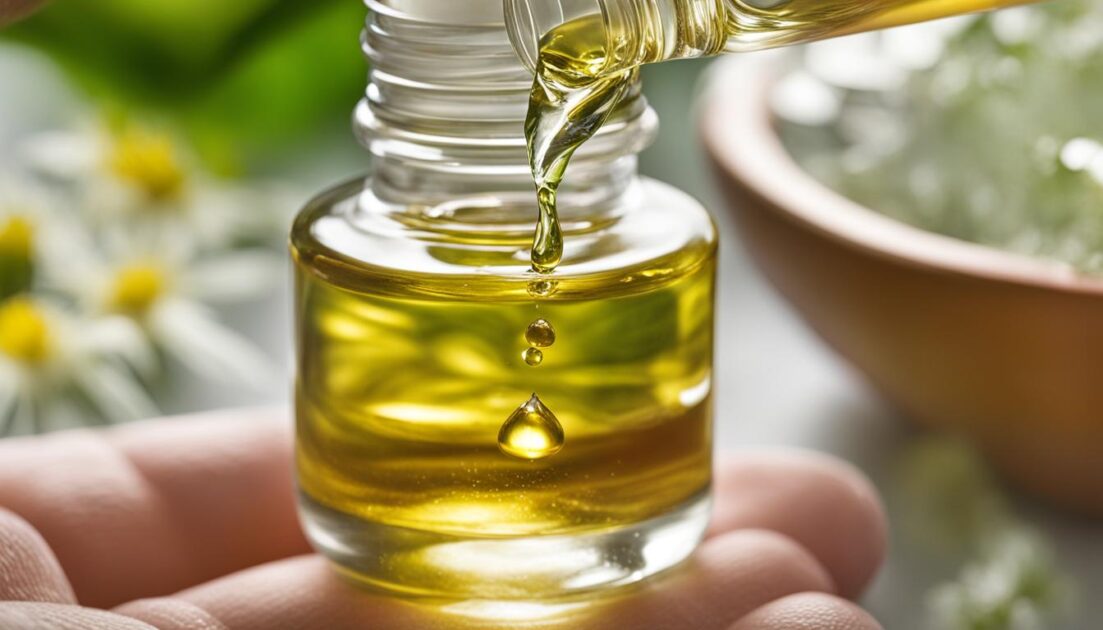Welcome to my article on vegetable glycerin uses, benefits, and applications. Vegetable glycerin is a versatile ingredient that has found its way into various industries, including food, cosmetics, and pharmaceuticals. Its moisturizing properties and ability to improve hydration make it a popular choice in skincare and cosmetic products. Additionally, it serves as a sweetener and preservative in the food industry, plays a crucial role in the production of e-liquids, and has multiple applications in soap making. With its wide range of uses and benefits, vegetable glycerin is a valuable ingredient in different products.
Key Takeaways:
- Vegetable glycerin has numerous applications and benefits across various industries.
- It is widely used in skincare and cosmetic products for its moisturizing and hydrating properties.
- In the food industry, vegetable glycerin acts as a sweetener, preservative, and texture enhancer.
- It is a key component in the production of e-liquids and soap.
- Choosing a reputable brand is important to ensure the quality of vegetable glycerin.
History and Origin of Vegetable Glycerin
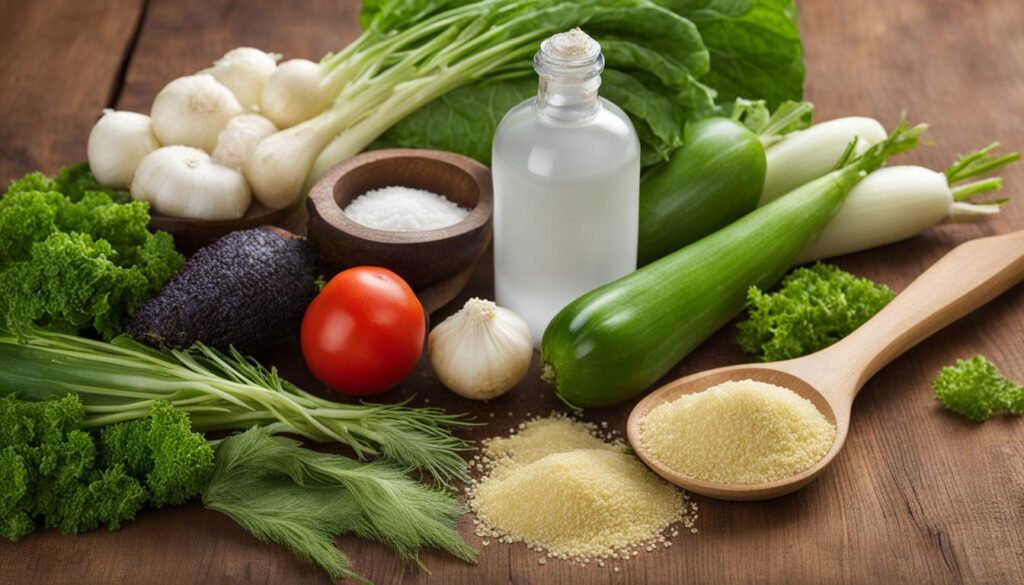
Vegetable glycerin, a versatile ingredient with numerous applications, has a rich history that dates back more than two centuries. Its accidental discovery occurred during the late 1800s when it was initially used in the production of dynamite. Since then, vegetable glycerin has evolved into a crucial component in various industries.
The process of extracting vegetable glycerin involves heating triglyceride-rich vegetable fats, such as palm, soy, and coconut oils, under pressure. This heating process causes the separation of glycerin from the fatty acids, resulting in a clear, syrup-like liquid.
Over the years, vegetable glycerin has gained prominence and found its way into numerous applications, ranging from food and cosmetics to pharmaceuticals and more. Its remarkable versatility and beneficial properties make it a sought-after ingredient in different industry sectors.
Properties and Key Components of Vegetable Glycerin
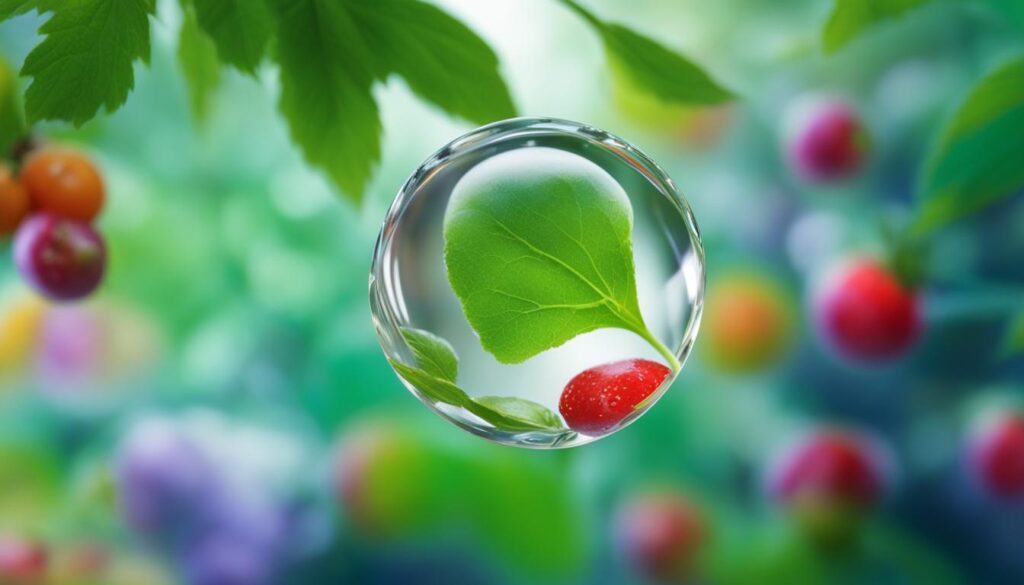
Vegetable glycerin, derived from plant oils such as soybean, coconut, or palm oil, is a clear liquid with a mild, sweet taste and a syrup-like consistency. This sugar alcohol compound consists of carbon, hydrogen, and oxygen atoms, making it a natural and environmentally friendly ingredient. With its excellent moisturizing properties and high effectiveness as a humectant, vegetable glycerin is widely used in skincare and cosmetic products.
One of the key components of vegetable glycerin is its ability to draw water into the skin, making it an exceptional hydrating agent. This property helps to lock in moisture, keeping the skin supple and preventing dryness. Additionally, glycerin forms a protective barrier on the skin, shielding it from external environmental factors.
With its natural origin and hygroscopic nature, vegetable glycerin ensures that the skin stays moisturized for extended periods. Its lightweight formulation allows it to be easily absorbed by the skin without leaving a greasy residue. These properties make vegetable glycerin an ideal ingredient for a wide range of skincare and cosmetic products, including moisturizers, serums, cleansers, and masks.
Furthermore, vegetable glycerin’s moisturizing effects extend beyond skincare. It is also utilized in hair care products, offering hydration and promoting hair manageability. In summary, the properties and key components of vegetable glycerin make it a valuable ingredient, enhancing the effectiveness of various beauty and personal care formulations.
Culinary and Food Uses of Vegetable Glycerin
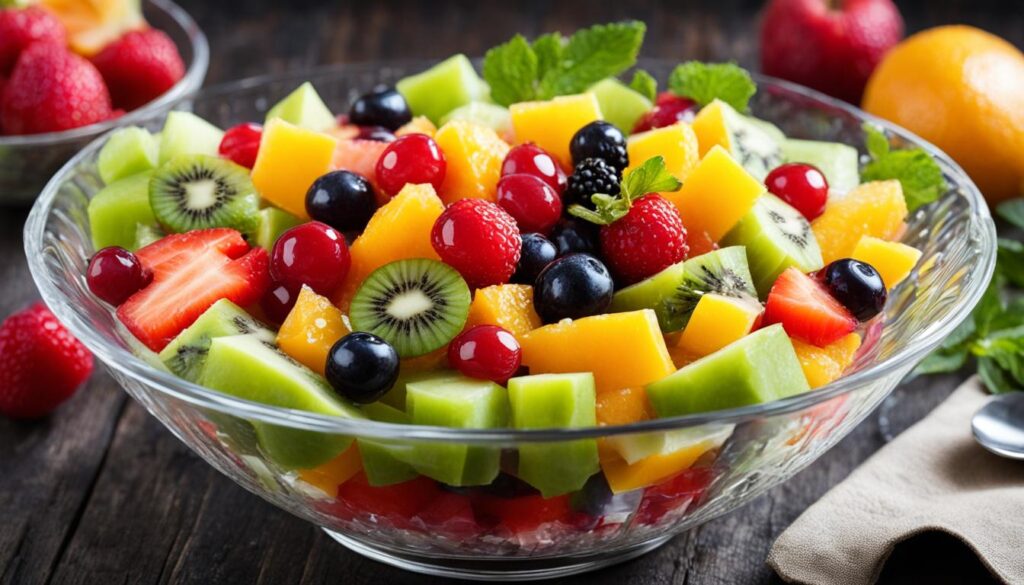
When it comes to culinary applications, vegetable glycerin plays a versatile role in the food industry. Its unique properties make it a valuable ingredient in various food products, offering both functional and taste-enhancing benefits.
One of the primary uses of vegetable glycerin in food is as a sweetener. Its mild and slightly sweet taste makes it a popular alternative to traditional sugars. Whether you’re making baked goods, beverages, or desserts, vegetable glycerin provides a natural sweetness without the added calories.
In addition to its role as a sweetener, vegetable glycerin also acts as a crucial ingredient in food manufacturing, helping to improve the texture and taste of various products. It serves as a humectant, which means it attracts and retains moisture. This makes it an excellent choice for keeping baked goods moist and preventing them from drying out.
Furthermore, vegetable glycerin’s unique properties allow it to act as both a preservative and a texture enhancer in food. It helps prevent ice crystals from forming in frozen foods and improves the overall texture of low-fat frozen yogurt, ice cream, and other desserts.
Here is a table showcasing some popular culinary and food uses of vegetable glycerin:
| Application | Benefits |
|---|---|
| As a sweetener in baked goods | Provides natural sweetness without additional calories |
| Preventing ice crystal formation in frozen foods | Improves texture and prevents crystallization |
| As a humectant in baked goods | Helps retain moisture and prevent drying out |
| Texture enhancer in low-fat frozen desserts | Improves smoothness and mouthfeel |
| As a preservative in certain food products | Prolongs shelf life and extends freshness |
By incorporating vegetable glycerin into your culinary endeavors, you can enjoy its various benefits and create delectable treats with enhanced taste, texture, and longevity.
Skincare and Cosmetic Uses of Vegetable Glycerin
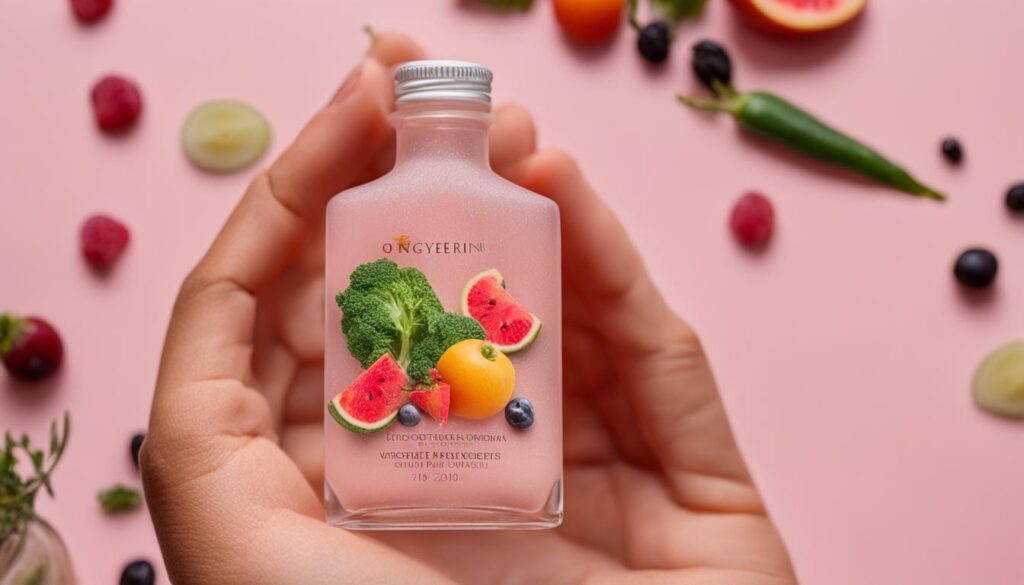
Vegetable glycerin is a prized ingredient in the cosmetic industry due to its exceptional moisturizing and hydrating properties. It is extensively incorporated into various skincare products, including creams, lotions, and moisturizers, to enhance skin smoothness and suppleness. Glycerin acts as a humectant, drawing moisture deep into the skin and helping to maintain optimal hydration levels. This natural ingredient also possesses soothing and protective effects, making it suitable for individuals with sensitive skin.
When used in cosmetics, vegetable glycerin serves as a powerful moisturizer and emollient. It nourishes the skin by forming a protective barrier, helping to lock in moisture and prevent water loss. With regular use, skincare products containing vegetable glycerin can contribute to improved skin elasticity, reduced dryness, and a healthier complexion.
“Vegetable glycerin is a game-changer in the beauty industry. It adds a much-needed dose of hydration to our skin, making it feel softer, plumper, and more youthful.”
In addition to creams and lotions, vegetable glycerin is a key ingredient in other cosmetic products such as soaps, candles, deodorants, and makeup. Its moisturizing and emollient properties make it a popular choice in these applications.
Skin Benefits of Vegetable Glycerin in Skincare
When vegetable glycerin is incorporated into skincare products, it offers a range of benefits:
- Intense Hydration: Vegetable glycerin acts as a moisture magnet, attracting water molecules to the skin and keeping it hydrated and plump.
- Improved Skin Smoothness: Regular use of vegetable glycerin can help smooth rough and uneven skin textures, promoting a smoother and more youthful appearance.
- Soothing and Calming: Vegetable glycerin has a soothing effect on the skin, reducing redness, irritation, and inflammation.
- Enhanced Skin Barrier: By forming a protective barrier on the skin’s surface, vegetable glycerin helps to prevent moisture loss and strengthens the skin’s natural defense mechanisms.
- Gentle and Suitable for Sensitive Skin: Vegetable glycerin is non-irritating and compatible with all skin types, including sensitive skin.
How to Incorporate Vegetable Glycerin into Skincare Routine
To reap the benefits of vegetable glycerin for skincare, follow these tips:
- Look for skincare products that list vegetable glycerin as one of the main ingredients.
- When using pure vegetable glycerin, dilute it with water or other suitable carrier oils to avoid any potential skin sensitivity.
- Apply glycerin-based products after cleansing and toning the skin, both in the morning and evening.
- Follow up with a moisturizer to seal in the hydration provided by vegetable glycerin.
- Remember to patch test new products containing vegetable glycerin before applying them to your entire face.
Incorporating vegetable glycerin into your skincare routine can be a game-changer for achieving hydrated, smooth, and healthy-looking skin. With its exceptional moisturizing properties and versatile uses, it is no wonder that vegetable glycerin has become a beloved ingredient in the world of cosmetics.
Pharmaceutical and Medical Uses of Vegetable Glycerin
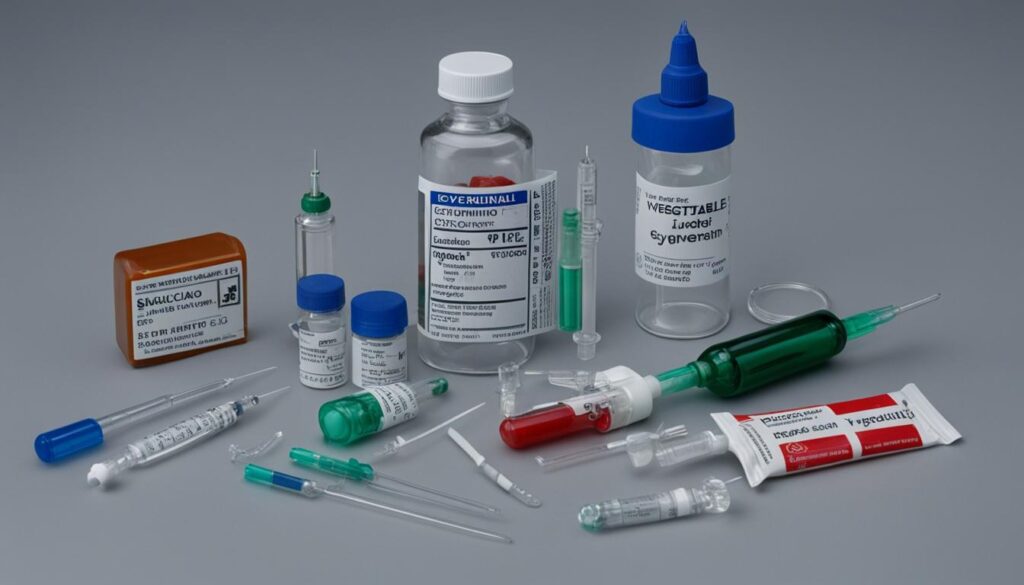
Vegetable glycerin is a versatile ingredient with various applications, including in the pharmaceutical and medical fields. Its unique properties make it an essential component in many pharmaceutical preparations, contributing to their effectiveness and ease of use.
Lubricant for Pharmaceutical Preparations:
Vegetable glycerin serves as a lubricant in several pharmaceutical products, such as cough syrups, ointments, and suppositories. Its lubricating properties help improve the texture and consistency of these preparations, making them easier to consume or apply.
Production of Medication Capsules:
In the manufacturing process of certain medications, vegetable glycerin is used to produce capsules. The glycerin acts as a binding agent, facilitating the formation of uniform capsules that contain the appropriate dosage of the medication.
Wound Healing and Skin Protection:
Vegetable glycerin also finds application in medical settings, particularly in wound healing. When applied topically, glycerin promotes the healing process by creating a protective barrier on the skin. This barrier helps retain moisture and enhances the skin’s natural healing mechanisms.
Overall, vegetable glycerin plays a vital role in the pharmaceutical industry, both as a lubricant and as an ingredient with wound healing properties. Its versatility and effectiveness make it a valuable component in various medical and pharmaceutical applications.
“The use of vegetable glycerin in pharmaceuticals has proven to be highly beneficial, improving the texture and effectiveness of various medical preparations.” – Dr. Emma Williams, Pharmaceutical Consultant
Other Topical Uses of Vegetable Glycerin

Vegetable glycerin has a wide range of other topical uses that extend beyond skincare and cosmetics. Its versatility makes it a valuable ingredient in various personal care products.
Toothpaste
One of the common uses of vegetable glycerin is in toothpaste formulations. It is added to prevent the toothpaste from drying out or hardening in the tube, ensuring a smooth and easy application every time.
Hair Care Products
Glycerin is also used in hair care products, such as shampoos and conditioners. Its hydrating properties help improve hair moisture retention, making the hair softer, smoother, and more manageable.
Deodorants
Deodorants and antiperspirants often contain vegetable glycerin due to its moisturizing properties. It helps keep the underarm skin hydrated, reducing dryness and irritation caused by regular use.
Lotions and Creams
In addition to skincare products, vegetable glycerin is commonly found in lotions and creams. It acts as a moisturizer and skin-soothing agent, providing relief to dry and irritated skin.
Vegetable glycerin is a versatile ingredient that enhances the effectiveness of various topical products, offering moisturization and soothing benefits.
Benefits and Applications of Vegetable Glycerin

Vegetable glycerin offers numerous benefits across different industries. In skincare, it helps moisturize the skin and improve its overall health and appearance. Glycerin acts as a humectant, attracting moisture to the skin and enhancing hydration levels, resulting in softer, smoother skin. Its soothing properties make it suitable for sensitive skin types, providing relief from dryness and irritation.
When consumed orally, vegetable glycerin can have laxative effects, relieving constipation and aiding in digestion. It acts as a gentle and natural remedy for digestive issues without causing harsh side effects.
In the food industry, vegetable glycerin serves as a versatile ingredient. It acts as a sweetener, providing a mild, sweet taste to various food products without the calories associated with traditional sugars. Additionally, vegetable glycerin acts as a preservative, extending the shelf life of certain foods. Its thick and syrup-like consistency makes it an effective texture enhancer, enhancing the smoothness and mouthfeel of food products.
Vegetable glycerin also plays an important role in the production of e-liquids for vaping. It acts as a base ingredient, providing a smooth and flavorful vaping experience. Glycerin is responsible for producing thick vapor clouds and enhancing the overall sensory experience.
In the soap-making process, vegetable glycerin is a crucial ingredient. It acts as a natural moisturizer, promoting skin hydration and preventing dryness. Glycerin helps the soap to retain moisture, keeping the skin soft and supple.
With its versatile benefits and applications, vegetable glycerin is a valuable ingredient in various products, ranging from skincare to food and beyond.
| Benefits of Vegetable Glycerin | Applications |
|---|---|
| Moisturizes the skin | Skincare products |
| Relieves constipation | Laxatives, digestive aids |
| Serves as a sweetener | Food industry |
| Acts as a preservative | Food industry |
| Enhances texture | Food industry |
| Base ingredient for e-liquids | Vaping |
| Natural moisturizer | Soap making |
Usage Tips, Cautions, and Best Quality Selection of Vegetable Glycerin
When using vegetable glycerin, it is important to dilute it properly to avoid any potential skin irritation. Start by using a small amount and observe any reactions on the skin. Vegetable glycerin is highly concentrated, so it is crucial to mix it with a suitable carrier oil or other ingredients as recommended. This will ensure that it is safe for use and maximizes its benefits.
Furthermore, it is advisable to store vegetable glycerin in a cool, dry place to maintain its quality and prevent degradation. Exposure to heat or sunlight can affect its stability and shelf life. By storing it properly, you can ensure that the vegetable glycerin remains effective and suitable for various applications.
When selecting vegetable glycerin, it is essential to choose a reputable brand that offers the best quality products. A reliable brand will provide you with vegetable glycerin that is pure, free from contaminants, and of high grade. Look for brands that follow strict quality control standards and have positive customer reviews. This way, you can have confidence in the product’s authenticity and effectiveness.
Lastly, always read and follow the product instructions provided. Pay attention to any cautions or warnings mentioned on the packaging or informational materials. This will help you understand the proper usage and any specific precautions to take when using vegetable glycerin. By following these guidelines, you can enjoy the benefits of vegetable glycerin while ensuring your safety and achieving the desired results.
FAQ
What are the uses and benefits of vegetable glycerin?
Vegetable glycerin has numerous applications and benefits. It is used in skincare and cosmetics to moisturize and improve hydration. It is also used as a sweetener and preservative in the food industry. Additionally, vegetable glycerin is a key component in the production of e-liquids and soap.
Where does vegetable glycerin come from?
Vegetable glycerin is derived from plant oils such as soybean, coconut, or palm oils.
How is vegetable glycerin made?
Vegetable glycerin is extracted by heating triglyceride-rich vegetable fats under pressure, causing the glycerin to separate from the fatty acids and form a clear, syrup-like liquid.
What are the culinary and food uses of vegetable glycerin?
Vegetable glycerin is used as a sweetener, preservative, and texture enhancer in various food products. It can be found in frozen desserts, including low-fat frozen yogurt and ice cream, to improve texture and prevent crystal formation. It is also used as a sweetener and to help oil and water-based ingredients mix together.
How is vegetable glycerin used in skincare and cosmetics?
Vegetable glycerin is commonly used in skincare products such as creams, lotions, and moisturizers to improve skin smoothness and suppleness. It acts as a humectant, drawing moisture into the skin and helping to maintain hydration levels. Glycerin is also used in soaps, candles, deodorants, and makeup for its moisturizing and emollient properties.
What are the pharmaceutical and medical uses of vegetable glycerin?
Vegetable glycerin is used as a lubricant in various pharmaceutical preparations, including cough syrups, ointments, and suppositories. It helps improve the texture and consistency of these products. Glycerin is also used in wound healing and acts as a protective barrier for the skin.
What are some other topical uses of vegetable glycerin?
Vegetable glycerin is added to toothpaste to prevent it from drying out and hardening in the tube. It is also used in hair care products such as shampoos and conditioners to improve hair hydration and manageability. Additionally, it can be found in deodorants and lotions for its moisturizing and skin-soothing properties.
What are the benefits and applications of vegetable glycerin?
Vegetable glycerin offers moisturizing, hydrating, soothing, and protective benefits. Its applications range from skincare and cosmetics to food, pharmaceuticals, and other topical products.
Are there any tips for using vegetable glycerin?
It is important to dilute vegetable glycerin properly to avoid potential skin irritation. Start with a small amount and observe any reactions. Store it in a cool, dry place to maintain its quality. When selecting vegetable glycerin, choose a reputable brand that offers high-quality products, and always read and follow the product instructions and any cautions or warnings provided.
